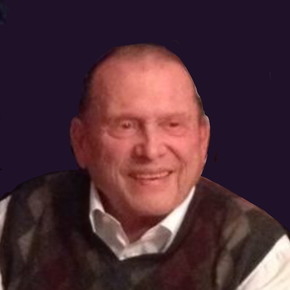There is a discussion in the Talmud among a number of Rabbis on who we should stand up for when they enter a room. They decided on three types of people. The righteous, the learned and the people of deeds. Yesterday, Montreal lost a man who embodied all three. Herbert Paperman passed away at the age of 92.
Herb, as he was known to everyone, passed away as he had lived. Quietly, with dignity and surrounded by love. He was beloved by all, but it was right and just that his final hours in this vale were warmed by his beloved wife Leila and their family at his side.
His passing has touched one and all. Not just Jewish Montrealers, but all who came in contact with him and his family. Perhaps the reason why can be found in his own words of the philosophy that guided his life. "The whole world is my country, every man is my brother, to do good is my religion," he once said. And he passed that commitment of doing righteousness - chesed - to his three sons Joseph, Laurence and Ross whom I have been proud to know my entire adult life as indeed I knew Herb.
For Herb, Paperman and Sons was not a business. It was a "service" as he once called it. That tradition of service was passed down as a torch of legacy from his grandfather Lazar to his father Abe to Herb and to Herb's sons. And how could it have been otherwise when one looks at this special family's history.

Many people have no idea how many funerals Herb ordered done without any cost. Indeed, it is also a little known fact that funerals for children bear no cost. His sons continue these cheseds. Though Herb once grudgingly confirmed to a reporter that Paperman's arranges some ninety per cent of Jewish funerals in Montreal, when the reporter pressed about the cost of caskets Herb answered, "many cost nothing." On a personal note I know this to be true. My late father was the founder of the Federation of Wolynian Jews of Montreal. Sometimes some of the 600 members were in dire straits at the time of a passing of a loved one. My father was constantly in awe of how Herb dealt with these cases with empathy, compassion and remarkable generosity.
For Herb, death was not something apart from life. It was simply the next stage. And he believed that good deeds are not just for this life that we see but must be carried over into the next life that we have not yet witnessed. This was not philosophy for Herb. He lived it to the point of giving talks to young people teaching them to deal with grief through hope. Herb once explained that, "By involving young children in the mourning process, we hope to break the cycle of fear. We want people to see the life there is, rather than what's gone."
But Herb's chesed was also about the here and now. There was not one opportunity for helping the vulnerable that he missed. I am not writing here about the institutional charity the family is justly noted for. I am writing about Herb picking up the phone and calling people asking whether there was anyone in their families or circle who needed help of any kind. As Rabbi Yonah Rosner wrote on Monday, "Herb's greatest pleasure in life was to be of assistance to others and when at any time the opportunity arose in the community to help individuals, institutions and philanthropic causes, Herb, along with his larger than life smile, was at the head of the line to help out without expecting anything in return. Every Yom Tov he would call me up and ask me if I had poor people in my Congregation who could use some help to make the Festive season truly enjoyable. For Herb there was no obstacle when it came to bringing joy, comfort and happiness to the downtrodden."
And he carried this passion into his involvement with his own family. Joe and Ross told me how whenever they would tell him of one or another of their own numerous charitable involvements, Herb was immediately anxious to help and get involved. As Ross put it, "Our purpose was instilled in us by him, and sometimes it was hard in projects we were all involved in to tell where he began and where we entered."
This quality of responsibility extended to how Herb ran this "service." In the late 90s the family sold Paperman's to a large North American company. Some two years later, dissatisfied with the impersonal service that the new owners were imposing, Herb and his family bought Paperman's back. I know of no example of sacrifice and service that can match that. Herb was a leader of conscience and character.
Let me end on a recent personal story. Last week a cousin of mine in Toronto lost her father-in-law. The arrangements were handled by a well established funeral home. But when she was telling me about the day she said, "I wish the Papermans were here. They made all this more human." What greater compliment can be given to the memory of Herb Paperman. Every day and in every way he made life - not just the passage from it - more human. He brought compassion to the community. We shall not soon see his like again.

























Commentaires
Veuillez vous connecter pour poster des commentaires.